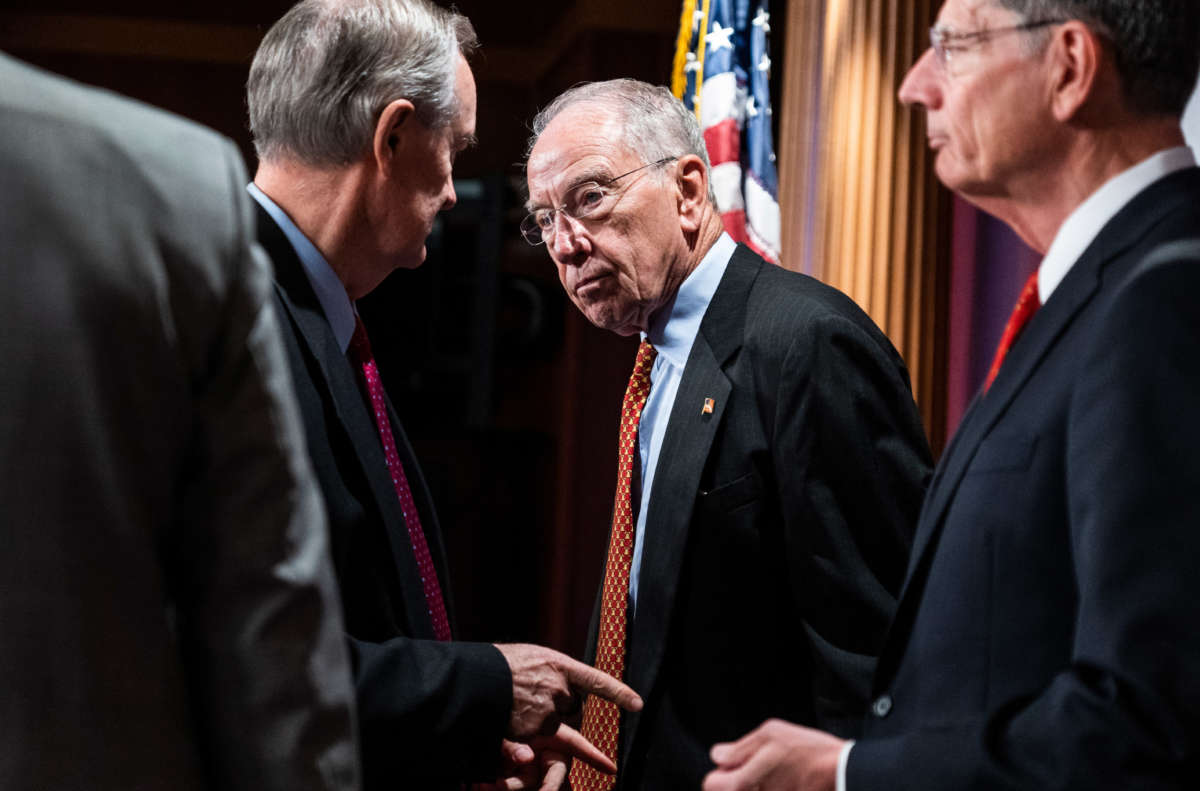On Sunday, Senate Republicans killed Democrats’ long-vaunted plan to cap monthly insulin prices for millions of Americans with health insurance who rely on the medication to survive, using an arcane rule to block the proposal that now has little chance of passing into law any time in the near future.
The provision to cap insulin at $35 a month for people with insurance was blocked in a 57 to 43 vote, with just seven Republicans voting to pass the potentially life-saving proposal. Because the provision had been struck down from the budget reconciliation process by the Senate parliamentarian earlier in the weekend, it required 60 votes to pass. Democrats could also have bucked tradition to reject the parliamentarian’s decision, as some progressives called for when the parliamentarian rejected a provision to raise the federal minimum wage to $15 last year.
Republicans had campaigned to get the insulin provision and other proposals to bring down the price of certain drugs for Medicare struck from the bill, working alongside powerful pharmaceutical lobbyists to bring their argument against the proposals to the parliamentarian. Medicare patients will still be able to access lower prices under the Inflation Reduction Act (IRA), which the Senate passed on Sunday, but people with other forms of insurance and people who are uninsured will continue having to shell out for the drug.
Insulin prices are sky-high in the U.S., with little to no regulations on prices that insurance companies and pharmaceutical companies can charge for the medication, which is required daily for an estimated 7 million Americans.
Many of the Senate’s most powerful Republicans voted against the provision, including Senate Minority Leader Mitch McConnell (R-Kentucky). Among those who joined all Democrats in voting for the measure were Senators Susan Collins (R-Maine) and Lisa Murkowski (R-Alaska).
Perhaps knowing that a bipartisan majority of voters supports capping the price of insulin, Sen. Chuck Grassley (R-Iowa) took to Twitter to purposefully mislead the public about his “no” vote on the proposal.
On Sunday, Grassley wrote, “I voted 2 make insulin available 4 pennies on the dollar 2 uninsured & w high deductible plans but Dems blocked it.” But the congressional record shows that Grassley voted against the measure and that it was Republicans who blocked the Democrats’ proposal. Republican lawmakers had offered their own insulin price proposal, but it was narrower than the one introduced by Democrats and was ultimately blocked.
Democratic lawmakers criticized Republicans for blocking the provision. “Too many Americans with diabetes have to ration their insulin because of high costs. But Republicans voted to strip out Democrats’ efforts to lower the costs of insulin from the Inflation Reduction Act,” wrote Sen. Elizabeth Warren (D-Massachusetts). “It’s shameful.”
“Here are the McConnell Republican senators who just killed capping insulin at $35,” wrote Sen. Bill Pascrell (D-New Jersey) on Sunday, attaching a list of all 43 “no” votes. “Republicans told millions of Americans who use insulin to go to hell. Remember their names.”
Research has found that about 14 percent of Americans who use insulin say they are forced to pay more than 40 percent of income that’s left after paying for essentials like rent and food on the medication. Other studies have found that a majority of patients who rely on insulin report having to take out credit card debt to afford the medication, while about a quarter of patients say they’ve had to ration the drug, which could potentially lead to dangerous consequences.
This — and the often unaffordable prices of many other prescription drugs — is a uniquely American problem; the Department of Health and Human Services found in a 2020 report that, in 2018, a standard vial of insulin cost an average of 10 times more in the U.S. than it did in all other 32 OECD countries for which insulin prices are available.
Join us in defending the truth before it’s too late
The future of independent journalism is uncertain, and the consequences of losing it are too grave to ignore. To ensure Truthout remains safe, strong, and free, we need to raise $43,000 in the next 6 days. Every dollar raised goes directly toward the costs of producing news you can trust.
Please give what you can — because by supporting us with a tax-deductible donation, you’re not just preserving a source of news, you’re helping to safeguard what’s left of our democracy.
